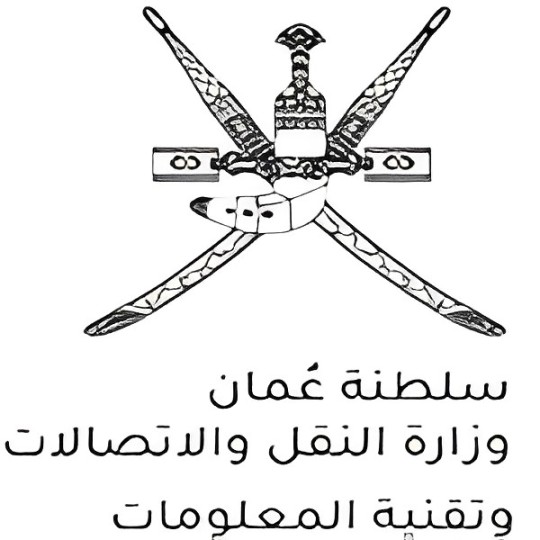+968 9596 3381
Phone Number
[email protected]
Email Address
Mon - Thu: 8:00 - 5:00
Online store always open
Phone Number
Email Address
Online store always open
WhatsApp Us Today
Drop Us an Email Today
Google Map Location
Saturday to Thursday
Withholding Tax (WHT) is a key aspect of Oman’s corporate tax system, especially for payments made to non-residents. Whether you’re a business engaging foreign contractors or receiving cross-border services, understanding how WHT applies is essential for compliance and cost management. This 2025 guide explores Oman’s Withholding Tax framework, including applicable rates, exemptions, recent updates, sector-specific treatment, and practical steps for compliance.

In the Sultanate of Oman, understanding the intricacies of Withholding Tax (WHT) is paramount for any business engaging in cross-border transactions, particularly when making payments to non-resident entities. WHT acts as an advance collection of income tax, deducted at source by the Omani payer before remitting certain types of income to foreign companies or individuals who do not have a Permanent Establishment (PE) in Oman.
The Omani tax landscape, governed primarily by the Income Tax Law (Royal Decree 28/2009, as amended), places the responsibility squarely on the Omani payer to correctly identify taxable income streams, apply the appropriate WHT rate, and remit the withheld amount to the Oman Tax Authority (OTA). Navigating these rules, coupled with the potential for relief under Oman’s expanding network of Double Taxation Treaties (DTTs), requires precision and expertise. This comprehensive guide will delve into the standard WHT rates, the types of income subject to this tax, key exemptions, and the critical compliance procedures, offering invaluable insights for businesses operating in or with Oman.
Withholding Tax is a mechanism where a business deducts tax at source when making certain payments to non-resident individuals or entities. The tax is remitted to the Oman Tax Authority (OTA) instead of the full payment going to the service provider.
This ensures tax collection from cross-border income that may otherwise escape Oman’s tax net.
WHT applies to payments made by Omani residents or permanent establishments to non-resident persons, including:
Foreign companies
Offshore consultants
Contractors without a permanent establishment (PE) in Oman
It does not apply to domestic (resident-to-resident) transactions.
Oman’s WHT regime applies to a specific set of income types derived from sources within the Sultanate by non-residents who do not have a Permanent Establishment (PE) in Oman. The standard WHT rate is 10% on the gross amount of these payments.
The primary income streams subject to WHT are:
Royalties:
Payments for the use of, or the right to use, copyrights (literary, artistic, scientific works, including computer software), patents, trademarks, designs or models, plans, secret formulae or processes.
Consideration for information concerning industrial, commercial, or scientific experience (know-how).
Consideration for the use of, or the right to use, industrial, commercial, or scientific equipment.
Note: The scope specifically includes consideration for the use or right to use computer software.
Management Fees:
Payments for administrative, technical, supervisory, or consultancy services rendered.
Crucial Clarification: Omani tax laws clarify that WHT on service fees (including management fees) applies regardless of where the services are rendered (i.e., whether performed wholly or partially within Oman, or entirely outside Oman). This broadens the applicability significantly.
Service Fees (General):
Payments for professional, technical, scientific, or any other services (including consultancy) provided by non-residents.
This is a broad category, but certain payments are generally not considered service payments subject to WHT, such as:
Participation in organizations, conferences, seminars, or exhibitions.
Training fees.
Freight charges and associated insurance.
Air tickets and accommodation costs abroad.
Interest:
Income derived from loans or any financial arrangement, including income from bonds and Sukuk.
Specific Exemptions for Interest:
Coupon and periodic distribution amounts paid on bonds and Sukuk issued by the Omani government or banks in Oman.
Interest payable on facilities between banks for liquidity management purposes with a tenor of five years or less.
Interest paid on credit sales of equipment.
Dividends:
Dividends distributed by Omani joint stock companies to foreign shareholders are subject to WHT.
Important Distinction: Profit distributions from Omani Limited Liability Companies (LLCs) to foreign partners are not subject to WHT in Oman.
Dividends paid to GCC entities (including GCC-registered companies, irrespective of the nationality of their shareholders) are generally exempt due to the “equal treatment” principle under the GCC Economic Agreement.
Consideration for Conduct of Research and Development.
| Type of Payment | WHT Rate |
|---|---|
| Royalties | 10% |
| Interest payments | 10% |
| Management fees (admin, financial, etc.) | 10% |
| Consideration for R&D, technical services | 10% |
| Dividends (for listed companies or others) | 0% |
Note: If a Double Taxation Avoidance Agreement (DTAA) applies, reduced rates may be available.
WHT applies when:
The payee is a non-resident, with no PE in Oman
The payment type is within the scope of taxable services listed in Omani tax law
The income is sourced from Oman (i.e., services performed for or within Oman)
Examples:
An Omani company paying for foreign software licenses
Hiring a non-resident consultant for a short project
Paying interest on a foreign loan
Payments made to Omani-resident companies or branches of foreign firms in Oman are not subject to WHT.
Oman has signed 35+ DTAAs (including with UAE, India, UK, and others). These may:
Lower WHT rates
Exempt certain income
Provide relief through tax credits
As of recent tax reforms, dividend payments are not subject to WHT under most conditions.
If the foreign supplier has a registered PE in Oman, WHT does not apply – regular corporate tax rules are used instead.
WHT is calculated on the gross amount paid to the non-resident.
Example:
You pay a foreign engineer OMR 10,000 for technical services.
WHT = 10% of OMR 10,000 = OMR 1,000
You pay OMR 9,000 to the consultant and remit OMR 1,000 to OTA.
You must also issue a Withholding Tax Certificate to the non-resident to confirm compliance.
Deduct the applicable WHT when making payment to the non-resident.
Pay the deducted WHT to the Oman Tax Authority within 14 days of payment.
File a Withholding Tax Return via the OTA tax portal.
Issue a certificate to the payee confirming tax deduction and payment.
Failure to deduct or remit WHT may result in penalties, interest, and possible disallowance of the expense as a deduction.




Software licenses, hosting, digital services – all typically fall under royalty or technical service categories.
Foreign consultants, site supervisors, or design specialists may attract WHT on service fees.
Interest on foreign loans or inter-company financing is taxable.
Highly regulated; WHT applies on management, technical, or offshore contractor fees.
Withholding Tax applies to cross-border payments where the service provider is a non-resident.
Reverse Charge Mechanism (RCM) under VAT applies when importing services, and the recipient self-declares VAT.
Both may apply simultaneously — e.g., paying a foreign consultant may require you to apply WHT and RCM.
Not checking the residency status of the payee
Misclassifying payments (e.g., treating technical services as non-taxable)
Ignoring DTAA provisions
Failing to file returns or remit WHT on time
Assuming WHT does not apply to freelancers or non-registered agents
Payment invoice or contract
Non-resident declaration (sometimes residency certificate)
Proof of tax deduction
WHT Certificate issued to payee
Filing acknowledgment from OTA
Maintain records for 7+ years in case of audit.
| Violation | Penalty |
|---|---|
| Late WHT payment | Daily interest + administrative fine |
| Failure to deduct tax | Liability for full amount + fine |
| Filing false statements | Up to OMR 10,000 and/or imprisonment |
| Non-submission of WHT certificate | Penalties and potential audit |
Is withholding tax applicable to services provided by freelancers abroad?
Yes, if the freelancer is a non-resident and provides taxable services to an Omani client.
Do I need to deduct WHT on imports of goods?
No, WHT applies only to services, royalties, interest, and technical fees, not to physical goods.
Can I recover WHT paid?
No, WHT is final for non-residents. However, they may claim relief under DTAA in their home country.
Is withholding tax applicable between two Omani companies?
No, WHT applies only to non-resident payees.
How can I confirm the correct rate under a treaty?
Review the specific DTAA between Oman and the country of the payee. A tax residency certificate may be required.





Contact Setup in Oman today for a consultation and ensure your cross-border transactions are fully compliant with Oman’s Withholding Tax regulations.
The standard Withholding Tax rate in Oman is 10% on the gross amount of the taxable income paid to non-residents without a PE in Oman.
However, this standard rate can be reduced or entirely eliminated in certain circumstances, primarily through:
Double Taxation Treaties (DTTs): Oman has an expanding network of DTTs with various countries worldwide. These bilateral agreements aim to prevent double taxation of income and often provide for reduced WHT rates or exemptions on specific income streams (e.g., dividends, interest, royalties, technical service fees) when paid to residents of the treaty partner country.
Example: A recent Protocol to the India-Oman DTAA, signed in January 2025, specifically reduces WHT rates on royalties and technical fees from 15% to 10% (reflecting the standard Omani rate, but DTTs can offer further reduction for other income types).
To claim DTT benefits, the non-resident recipient usually needs to provide a Certificate of Residency from their home country’s tax authority to the Omani payer, proving their tax residency in the treaty country.
Specific Legal Exemptions: As noted above, certain types of interest and dividends are statutorily exempt from WHT under Omani law.
Government-Related Entities: In some cases, payments to foreign governments, central banks, or specific government-owned entities (e.g., State General Reserve Fund, Omani Investment Fund) may benefit from WHT exemptions, often specified in DTTs or special decrees.
For WHT purposes in Oman, a “non-resident” typically refers to a foreign individual or entity that does not have a Permanent Establishment (PE) in Oman.
A PE generally implies a fixed place of business through which a business is wholly or partly carried on in Oman. However, the definition can be broader:
A foreign person rendering any consultancy or other services in Oman, either directly or through an agent, for a period of ninety days or more within any 12-month period, will generally be deemed to have a PE in Oman and would therefore be subject to corporate income tax rather than WHT on that income.
If a non-resident does have a PE in Oman, the income attributable to that PE is generally subject to Omani corporate income tax, and WHT provisions would typically not apply to that specific income.
The responsibility for WHT compliance primarily rests with the Omani payer:
Identify Taxable Payments: The Omani entity must correctly identify if a payment to a non-resident falls under the categories subject to WHT.
Determine Non-Resident Status: Confirm that the recipient is a non-resident and does not have a PE in Oman.
Check for DTT Relief: If the recipient is a resident of a country with which Oman has a DTT, assess whether the treaty reduces or eliminates the WHT rate for that specific income type. Obtain a valid Certificate of Residency from the non-resident.
Withhold the Tax: Deduct the applicable WHT amount (10% or reduced treaty rate) from the gross payment to the non-resident.
File WHT Return: The Omani payer must submit a WHT return to the Oman Tax Authority (OTA) via their eTax portal.
Remit Payment: The withheld tax amount must be remitted to the OTA.
Deadlines: WHT returns and payments are typically due on a monthly basis, within 14 days from the end of the month in which the payment subject to WHT was made or credited.
Documentation: Maintain meticulous records for at least 10 years, including:
Contracts with non-residents.
Invoices from non-residents.
Proof of payment.
Confirmation of WHT deducted.
Any Certificates of Residency used to apply DTT benefits.
Failure to comply with WHT obligations can result in severe penalties for the Omani payer, including:
Fines for failure to withhold.
Penalties for late payment or late filing of WHT returns.
Fines for failure to maintain adequate records.
Interest on overdue amounts.
In cases of deliberate evasion or misrepresentation, more significant fines and even imprisonment may apply.
Managing Withholding Tax obligations effectively is crucial for any business making international payments, ensuring compliance and avoiding penalties. Setup in Oman offers a range of services that indirectly and directly support your WHT compliance:
Company Formation: A properly established Omani entity is the foundation of all tax compliance, including WHT. Our Company Formation services ensure your business is legally structured and registered with MoCIIP, providing the necessary legal standing to accurately manage your tax obligations from day one.
Corporate Bank Account: Accurate and timely WHT remittances depend on robust financial operations. Our assistance in opening your corporate bank account in Oman ensures you have the necessary banking infrastructure to process payments to non-residents and remit the withheld tax to the Oman Tax Authority efficiently.
PRO Services & Tax Compliance Support: Navigating WHT regulations, preparing returns, and liaising with the Oman Tax Authority can be complex, especially with cross-border payment nuances and DTT considerations. Our comprehensive PRO services extend to providing crucial support for your tax compliance needs, including assistance with WHT filings, ensuring adherence to deadlines, and general guidance on Omani tax regulations. While we focus on PRO services, we can also connect you with expert tax advisory partners if you require in-depth WHT planning and optimization.
Investor Visa & Work Visa: For key personnel involved in finance and compliance within your Omani operations, maintaining legal residency is essential. Our Investor Visa and Work Visa services ensure that your team members responsible for managing WHT obligations can legally reside and work in Oman, facilitating seamless oversight and execution of your tax responsibilities.
Oman’s Withholding Tax regime is a vital aspect of its tax system, designed to capture tax on income flowing from Omani sources to non-resident entities. The standard 10% rate on royalties, management fees, service fees, and certain dividends and interest demands careful attention from all businesses engaging in such cross-border transactions. With the recent signing of new Double Taxation Treaties and the ongoing emphasis on tax compliance by the Oman Tax Authority, staying informed and proactive is more critical than ever.
Misinterpreting WHT rules, failing to identify taxable income, or neglecting to claim DTT benefits can lead to significant financial penalties and reputational damage. Therefore, leveraging expert guidance is not just an advantage but a necessity for seamless operations in Oman.
Are you making payments to non-residents and need clarity on your Withholding Tax obligations in Oman?
Partner with Setup in Oman. Our team is well-versed in the intricacies of Omani business and compliance. While our core services focus on company formation and PRO support, we empower your business to meet its WHT obligations by ensuring your foundational setup is correct, and by guiding you through the necessary administrative processes. We can also connect you with specialized tax advisors if detailed WHT planning or DTT application is required.
Contact Setup in Oman today for a consultation and ensure your cross-border transactions are fully compliant with Oman’s Withholding Tax regulations.
Fill out our quick and easy contact form below. Briefly tell us about your vision and goals, and we’ll be in touch shortly to discuss a personalized plan for your success.
Al-Khuwair, Muscat, Sultanate of Oman